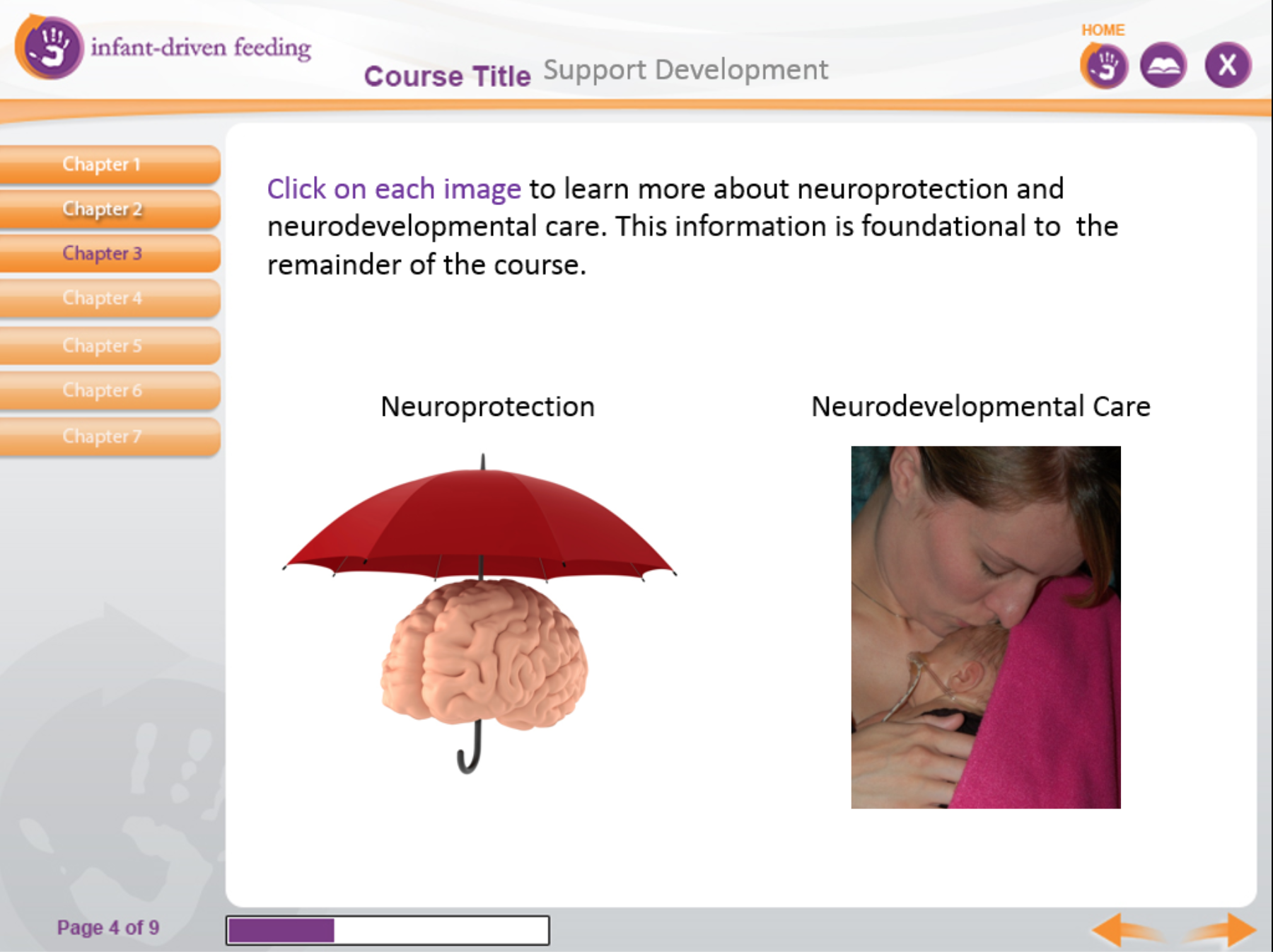by Sue Ludwig and Kara Ann Waitzman
 Suddenly the womb is replaced by a storm of sensory input. Light, temperature changes, noise, pain, noxious tastes, and multiple types of touch are introduced to the infant before his system is prepared to organize it. There is a traumatic separation from his mother. There are periods of isolation. Nutrition changes dramatically. The brain’s predictable process of neurodevelopment is forever altered.
Suddenly the womb is replaced by a storm of sensory input. Light, temperature changes, noise, pain, noxious tastes, and multiple types of touch are introduced to the infant before his system is prepared to organize it. There is a traumatic separation from his mother. There are periods of isolation. Nutrition changes dramatically. The brain’s predictable process of neurodevelopment is forever altered.
This is a reality for premature infants.
As caregivers you truly become part of his new environment, and with that comes significant responsibility. HOW you do everything matters. How you provide his care, alter the environment and support his family becomes his best shot at developing in a neuroprotective, developmentally supportive environment.
Therefore, Supporting Development is the first component of the Infant-Driven Feeding Model of Practice. It’s the foundation upon which all other components must be built. Feeding is a complex sensorimotor skill that can be positively or negatively affected by the nature of the individual and cumulative interactions he experiences. Every diaper change, every change in position, the way his respiratory equipment is taped to or positioned on his face, the way he’s supported during suctioning, and every skin-to-skin opportunity matters – in the moment and long-term.
If this first component is not realized, your feeding practice and feeding outcomes will suffer. Improving feeding practice is not easy. It cannot be done solely with a tool, a scale, or a new system of documentation. It involves extensive education, a deep understanding of neurodevelopment and feeding, a commitment to a fully integrated program, and the accountability to develop and maintain a new standard of care.
To that end, we poured our time and experience into creating a comprehensive online course so your unit’s feeding champions can shift their focus to preparation, bedside implementation, and accountability. Collectively, we will continue to raise the bar for oral feeding practice in the U.S. and abroad. When we work as a team babies and families benefit exponentially.
Success begins with every single bedside caregiver realizing his or her impact on neurodevelopment. You are literally shaping the future.